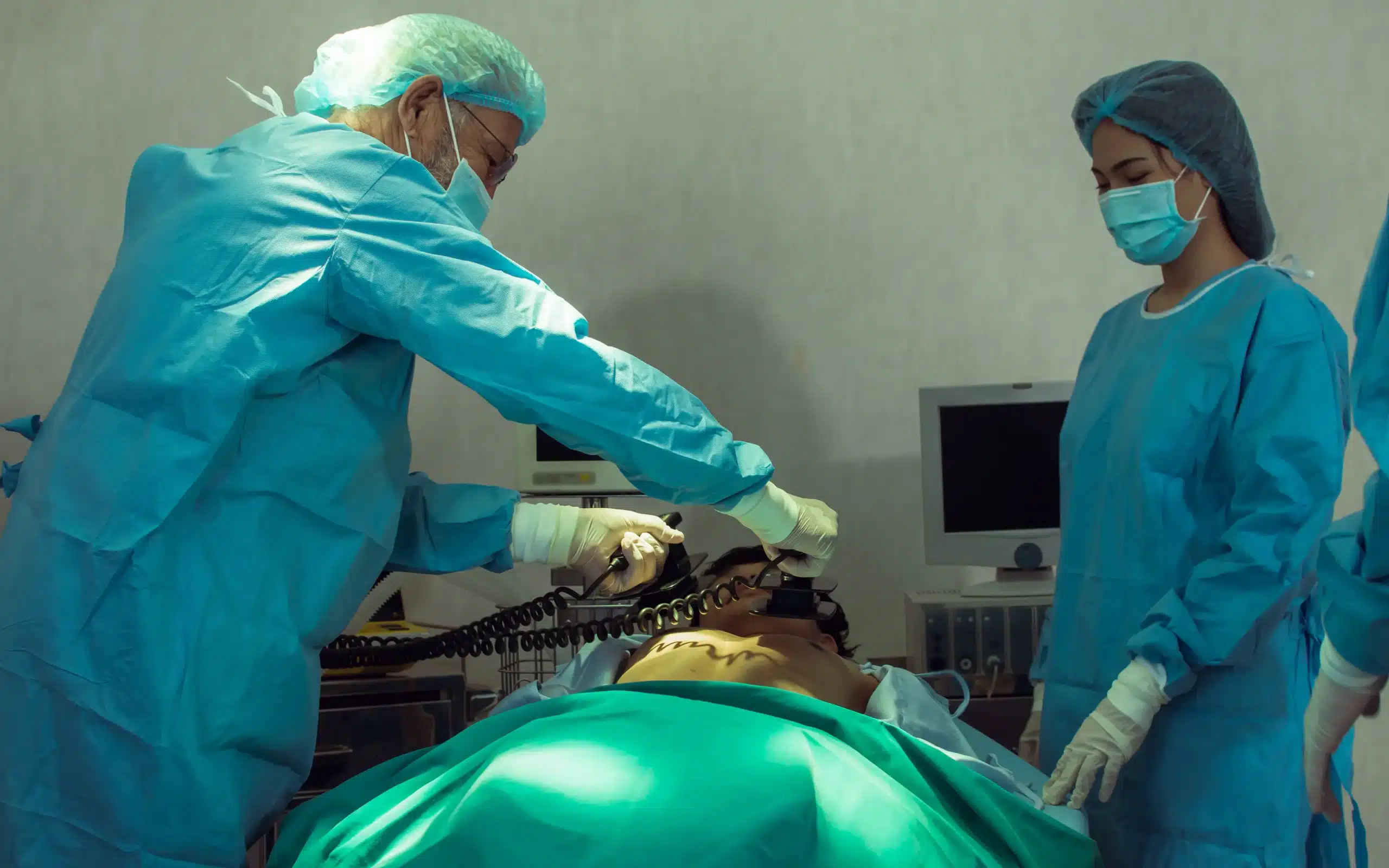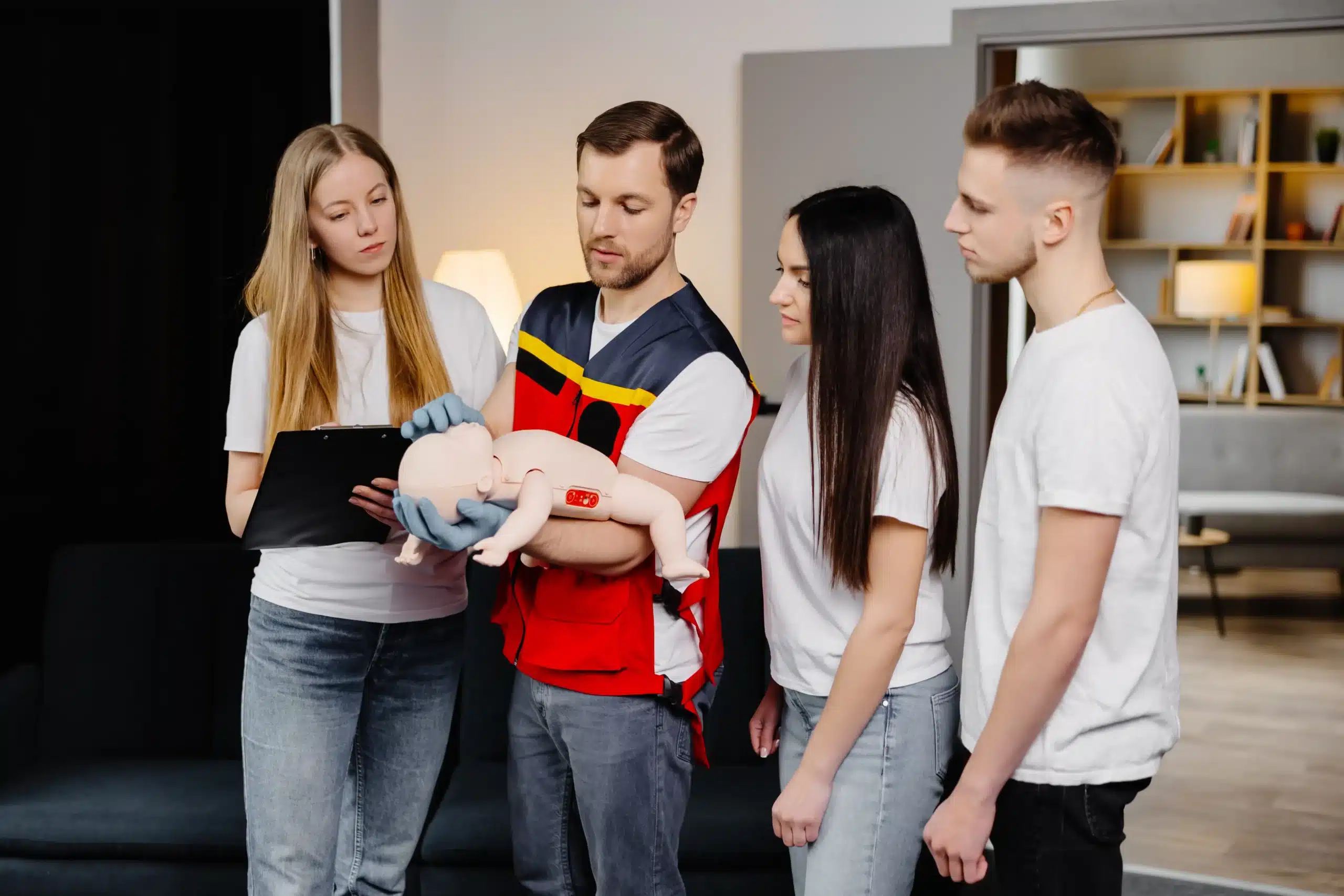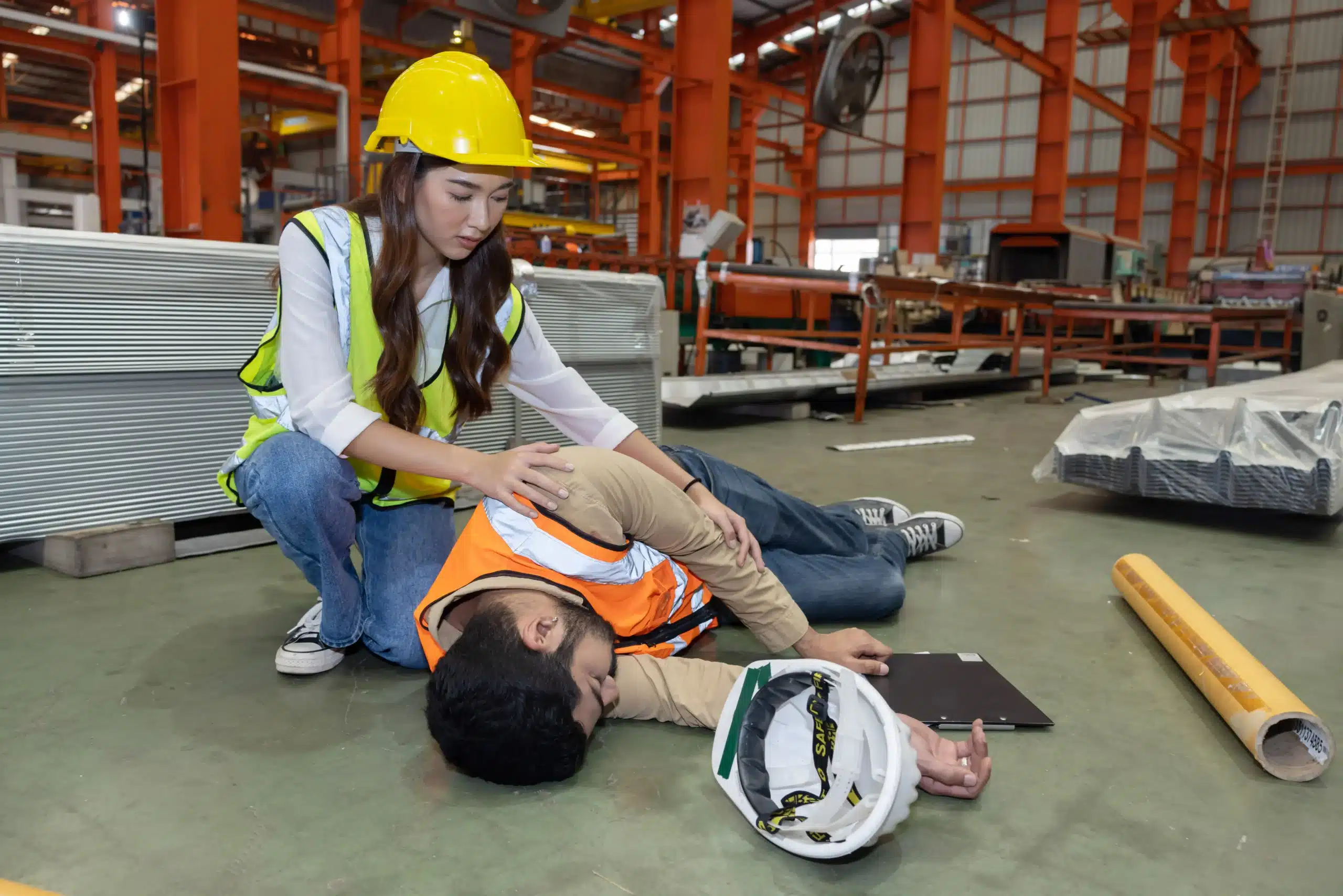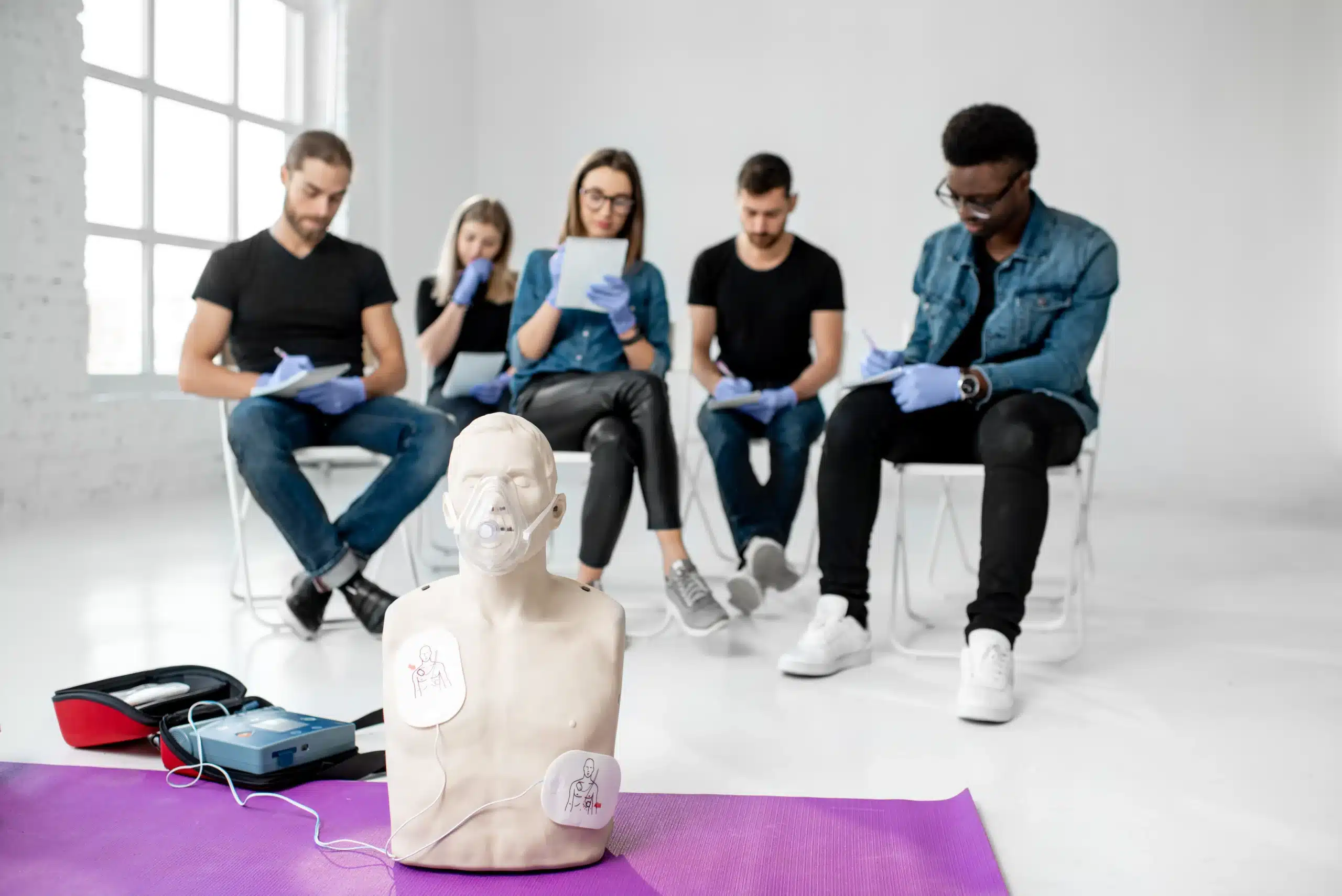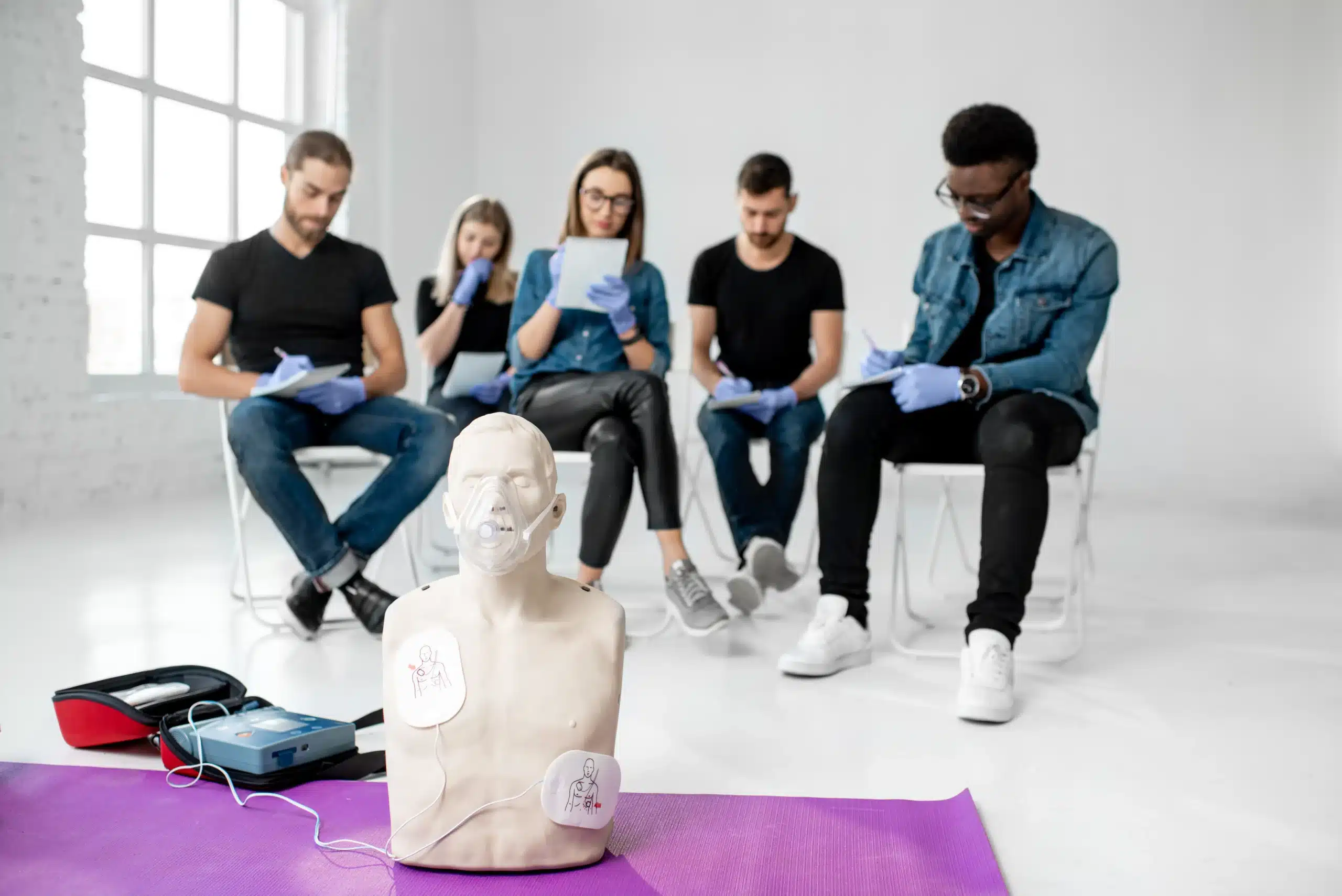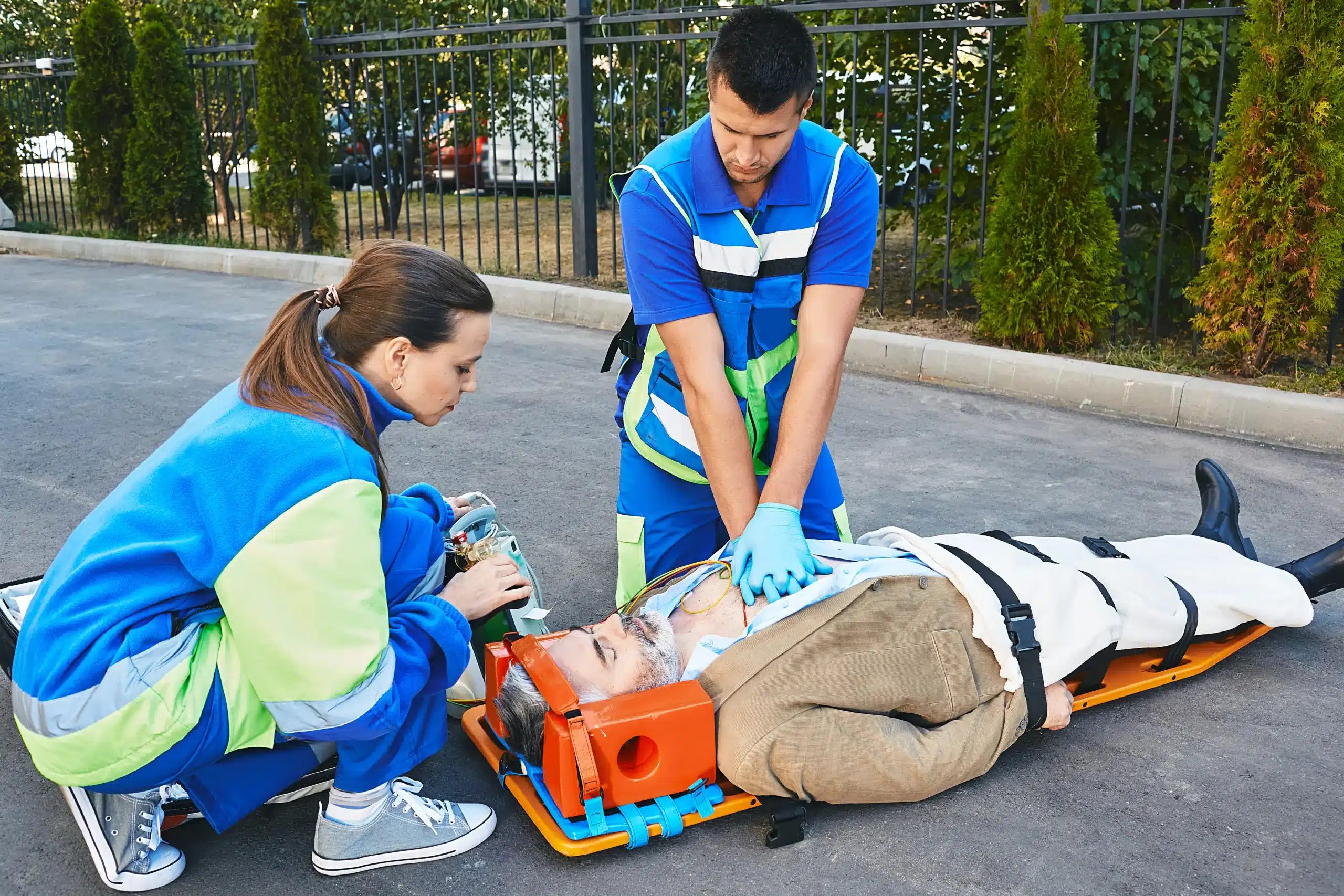Working in healthcare demands a unique blend of knowledge, compassion, and quick thinking. BLS certification equips nurses with the skills to handle critical situations, making it a cornerstone of quality patient care. If you’re a nurse in Davis seeking BLS certification or looking to renew your credentials, this guide is for you. We’ll explore the ins and outs of BLS courses for nurses in Davis, covering essential skills, top training providers, and how this certification strengthens your career.
Key Takeaways
- BLS certification is a must-have for nurses: It provides you with essential life-saving skills, meets employer requirements, and opens doors to career advancement. AHA-certified courses, like those offered by Davis CPR Classes, are widely accepted and respected in the healthcare field.
- Finding the right course is key: Look for courses with hands-on practice, experienced instructors, and flexible scheduling options that fit your busy life. Accreditation by a recognized organization like the AHA ensures your certification holds weight.
- Stay current to provide the best care: Maintaining your BLS certification demonstrates your commitment to patient safety and professional growth. Keep track of renewal deadlines, pursue continuing education credits, and stay informed about the latest AHA guidelines.
What are BLS Courses for Nurses in Davis?
BLS (Basic Life Support) courses for nurses in Davis equip healthcare professionals with the skills to respond to life-threatening emergencies. These courses, often certified by the American Heart Association, cover crucial topics, ensuring nurses can deliver immediate and effective care. Davis CPR Classes offers a range of safety training courses including BLS for Healthcare Providers.
Key BLS Certification Skills
A BLS course focuses on core skills needed to manage cardiac and respiratory emergencies. You’ll learn CPR for adults, children, and infants, how to use an AED, and techniques for rescue breathing and relieving choking. The course emphasizes high-quality CPR and effective AED use—critical factors in improving patient outcomes.
Why BLS Matters for Nurses
BLS certification isn’t just a job requirement; it’s a vital asset. It shows your commitment to patient safety and prepares you to handle critical situations. BLS training empowers nurses to confidently respond to emergencies, improving patient care and potentially saving lives. With the prevalence of cardiac arrests, having well-trained healthcare providers like BLS-certified nurses is more important than ever. Davis CPR Classes offers a low price guarantee for their BLS certification courses.
Top BLS Certification Providers in Davis
Finding the right BLS certification course is crucial for nurses. Here are some top providers in Davis, California, offering various options to fit your schedule and learning style.
Davis CPR Classes
Davis CPR Classes offers American Heart Association (AHA) certified courses in BLS, CPR, ACLS, PALS, and First Aid. They provide daily classes and convenient online options, making scheduling flexible for busy nurses. Their commitment to excellent customer service and a low-price guarantee in Sacramento County makes them a popular choice. You can view their BLS course schedule to register for upcoming classes. They also offer the innovative RQI program for medical professionals seeking to maintain their certifications.
Safety Training Seminars
Safety Training Seminars provides a comprehensive range of AHA-certified courses, including BLS for healthcare providers. Their training covers essential skills such as CPR for adults, children, and infants, plus AED use and rescue breathing techniques. This provider is known for its thorough and practical approach to lifesaving training. Explore their additional offerings on occupational health and safety.
Davis Technical College
Davis Technical College offers a Basic Life Support (BLS) course designed for healthcare providers. The curriculum includes CPR techniques for various age groups, AED use, and emergency response strategies, making it a solid option for nurses seeking certification. Visit their website for more information.
American Red Cross
The American Red Cross provides various CPR and BLS classes in Davis. These courses equip participants with essential lifesaving skills and are available in multiple formats, including in-person and online, offering flexibility for busy schedules.
UC Davis Health
While specific details about BLS courses at UC Davis Health might not be readily available online, checking their official website or contacting them directly is always recommended. They may offer BLS training programs tailored for healthcare professionals.
Choose the Right BLS Course for Your Nursing Career
As a nurse, your BLS certification is fundamental to your professional practice. Choosing the right course ensures you have the skills to provide excellent patient care. Here’s what to consider when selecting a BLS course for your nursing career:
Accreditation and Industry Recognition
First, confirm the course is accredited by a recognized organization like the American Heart Association (AHA). AHA-certified courses, like those offered by Davis CPR Classes, provide nationally recognized credentials. This is essential for career advancement and demonstrates your commitment to industry standards. Many employers prefer or require AHA certification, so prioritizing this accreditation is a good idea.
Course Content and Hands-on Practice
An effective BLS course goes beyond the textbook. Look for comprehensive content, including adult, child, and infant CPR, AED use, and techniques for choking victims. Hands-on practice is crucial for mastering these skills. Simulations and practice with manikins let you apply your knowledge in a safe environment, building confidence for real-world situations. Davis Technical College is one example of a provider emphasizing this practical approach.
Instructor Qualifications
Your instructor’s expertise directly impacts how much you learn. Experienced, certified instructors bring valuable practical knowledge to the classroom. Instructors certified by organizations like the Red Cross often have extensive field experience and can offer helpful insights. Their guidance can significantly enhance your learning.
Flexible Scheduling
We know you have a demanding schedule. Finding a BLS course that fits your life is easier with the variety of formats available. Look for providers offering weekday and weekend classes, online components, or blended learning. Davis CPR Classes understands the needs of busy professionals and offers flexible scheduling. Don’t let a rigid schedule prevent you from gaining this essential certification.
BLS Course Costs & Financial Aid
Understanding the costs associated with BLS certification and renewal is an important step in choosing the right course. This section breaks down typical expenses and explores ways to make training more affordable.
Certification & Renewal Fees
BLS certification involves a few key expenses. Initial certification fees vary, but online courses often cost around $95. Renewal fees are generally lower, often around $65. ACLS Medical Training offers online BLS certification, and their pricing is a good benchmark for budgeting your continuing education expenses.
Discounts and Promotions
Many organizations offer discounts and promotions, so it’s worth looking for opportunities to save. The American Red Cross, for example, often has promotional codes for things like free shipping on educational materials or discounts on training supplies. These small savings can make a difference.
Financial Assistance
If you’re concerned about the cost of certification, explore financial assistance options. Some employers cover the cost of BLS training for their employees. Many training providers also offer a full refund if your employer doesn’t accept their certification. This policy, offered by providers like ACLS Medical Training, can provide peace of mind when investing in your professional development. Check with the specific training center you’re considering to see what financial aid options they have available.
What to Expect in a BLS Course
A BLS course covers the essential skills healthcare providers need in medical emergencies. It’s fast-paced and hands-on, so prepare to actively participate and put your learning into practice.
Adult, Child, and Infant CPR
BLS courses cover CPR techniques for adults, children, and infants. You’ll learn how to assess a situation, deliver chest compressions, and provide rescue breaths. The course emphasizes high-quality CPR, including proper hand placement, compression depth, and rate. Be prepared for demonstrations and practice sessions using manikins. This BLS certification covers all the key components of CPR.
AED Use and Choking Relief
Using an AED is another critical skill covered in BLS training. You’ll learn to recognize the signs of a cardiac arrest, operate an AED safely, and integrate it into the CPR process. The course also covers how to help someone who is choking, including techniques for both conscious and unconscious individuals.
Team Dynamics in Emergencies
BLS training often involves working in teams to simulate real-world emergency scenarios. You’ll practice communicating effectively with team members, coordinating roles, and providing support during high-pressure situations. These courses emphasize hands-on practice using manikins and simulators.
Pre-Course Prep Tips
Before your BLS course, familiarize yourself with the course materials. If you’re a first-timer, choose the in-person BLS course. If you opt for the online/in-person hybrid course, complete the online portion well in advance of the skills check-off. This allows you to focus on the practical skills during the in-person session. Review the BLS Provider Handbook and watch any pre-course videos provided. Knowing the basics beforehand will help you get the most out of your training. You can find BLS courses in Davis, Woodland, and Sacramento.
Career Benefits of BLS Certification for Nurses
As a nurse, your skills and certifications directly impact patient care. BLS certification is a cornerstone of your professional toolkit, offering numerous benefits throughout your career.
Meet Employer Requirements
Most healthcare employers require nurses to hold a current BLS certification. This isn’t just a formality; it demonstrates a commitment to patient safety and high-quality care. Hospitals and clinics adhere to strict standards, often aligned with guidelines from organizations like the American Heart Association (AHA). Holding an AHA-approved BLS certification assures your employer that you’re trained to the highest standards. Check with your employer or prospective employer for their specific requirements. You can find BLS courses in Davis that meet these standards.
Enhance Patient Care Skills
BLS certification equips you with the essential skills to respond effectively in critical situations. From performing CPR on adults, children, and infants to using an AED and providing relief for choking victims, these skills are crucial for any healthcare provider. A BLS course also covers rescue breathing and other life-saving techniques, giving you the confidence to act quickly and decisively when every second counts. Consider exploring the course offerings at Davis Technical College.
Advance Your Career
BLS certification isn’t just about meeting basic requirements; it’s an investment in your professional development. It demonstrates your dedication to continuous learning and your commitment to providing the best possible patient care. These certifications can open doors to new opportunities and specializations within your nursing career. Davis CPR Classes offers a range of courses, including BLS, to help you advance your career. Whether you’re aiming for a promotion, considering a specialized role, or simply want to enhance your resume, BLS certification is a valuable asset.
Maintain Your BLS Certification
As a nurse, staying current with your certifications is essential. It’s not a one-and-done deal. Let’s discuss how to maintain your BLS certification and why it matters.
Renewal Process and Timeframes
BLS certifications are typically valid for two years. It’s crucial to renew your BLS certification before it expires to maintain compliance with workplace standards and ensure your skills are sharp. Don’t let your certification lapse—plan for renewal. Check with your certifying organization, such as the American Heart Association or the Red Cross, for specific renewal guidelines and resources.
Continuing Education
Many BLS certification courses offer continuing education (CE) credits. For example, you might earn 8 CE credits upon initial certification and 4 upon renewal. These credits can be valuable for nurses fulfilling professional development requirements. Check with your employer or state licensing board to see how BLS CE credits can benefit you.
Stay Current with Guidelines
Staying up-to-date with the latest BLS guidelines is essential for providing effective care, as guidelines and best practices can change. The American Heart Association (AHA) frequently updates its recommendations, and your BLS renewal course will cover these updates. AHA BLS certification often involves an online component and an in-person skills assessment. This blended approach ensures you understand the latest information and can demonstrate your skills. Look for courses that emphasize hands-on practice and scenario-based learning. Davis CPR Classes offers courses aligned with current AHA guidelines.
Apply BLS Skills in Nursing Practice
Respond Confidently in Emergencies
As a nurse, you’re on the front lines of patient care. BLS training equips you with the essential skills to respond effectively during emergencies. BLS certification courses cover techniques like CPR for adults, children, and infants, plus how to use an AED. These skills empower you to act quickly and confidently when every second counts. This confidence translates to a calmer, more controlled response, allowing you to focus on providing the best possible care.
Contribute to Patient Safety
BLS training isn’t just about individual skills; it’s a cornerstone of patient safety. High-quality CPR and rapid intervention dramatically improve patient outcomes. When your team is proficient in BLS, it creates a culture of safety and preparedness. This shared knowledge contributes to a more secure environment for everyone. Davis CPR Classes emphasizes these critical aspects of BLS, ensuring you’re prepared to contribute to a safer healthcare setting.
Integrate BLS into Daily Care
BLS skills are more than just emergency procedures; they are integral to daily nursing practice. The hands-on training with manikins and simulators prepares you for real-world scenarios. This practical experience translates directly to improved patient care. Regular practice keeps your skills sharp, ensuring you can deliver the highest quality care. It also demonstrates your commitment to professional development, which can benefit your career. Consider exploring BLS course options in Davis to enhance your skills and contribute to a safer patient environment.
Find the Right BLS Course Schedule
As a nurse, your schedule is likely demanding. Finding the right BLS course often comes down to convenient scheduling. Let’s explore some options to help you fit this essential training into your busy life.
Weekday vs. Weekend Classes
Many training centers recognize the time constraints nurses face and offer BLS courses on both weekdays and weekends. Davis CPR Classes offers a range of options to accommodate various schedules. Think about your typical work week and personal commitments. Do you have more free time during the week or on weekends? Choosing a schedule that aligns with your existing routine will make attending the course much easier.
Online & In-Person Skills Assessments
While online resources can be valuable for reviewing course material, remember that BLS certification through the American Heart Association (AHA) requires an in-person skills assessment. This means you’ll need to attend a hands-on session to demonstrate your CPR technique and other essential skills. The in-person component is crucial for mastering the practical application of BLS and ensures you’re fully prepared to respond to real-life emergencies. Davis CPR Classes offers blended learning options that combine online coursework with in-person skills sessions.
Balance Work and Training
BLS courses are designed to be efficient and comprehensive, typically lasting between two and four hours. More advanced courses, such as Advanced Cardiac Life Support (ACLS), may require a full day. Knowing the time commitment beforehand allows you to plan accordingly and balance your work responsibilities with your training needs. Consider factors like travel time and any pre-course preparation when scheduling your BLS training. Reviewing course calendars, like the one offered by Davis Technical College, can give you a sense of typical course durations. Remember, investing in your BLS certification is an investment in your career and the safety of your patients.
Related Articles
- BLS Classes in Davis: Your Complete Guide – Davis CPR Classes
- Basic Life Support (BLS) in Davis: A Complete Guide – Davis CPR Classes
- BLS in Davis: Your Guide to Certification – Davis CPR Classes
- BLS Certification for Healthcare Providers in Woodland – Davis CPR Classes
- HeartCode BLS Training in Sacramento: Your Complete Guide – Davis CPR Classes
Frequently Asked Questions
How often do I need to renew my BLS certification? BLS certification is typically valid for two years. Plan to renew before it expires to maintain your credentials and keep your skills current. Check with your certifying organization (like the AHA or Red Cross) for their specific renewal guidelines.
What’s the difference between online and in-person BLS courses? While online resources can be helpful for reviewing material, AHA-certified BLS requires an in-person skills assessment. This hands-on session lets you demonstrate your CPR technique and other skills to a certified instructor. Some providers offer blended learning, combining online coursework with in-person skills checks.
How much does a BLS course cost? Costs vary, but online courses often start around $95, with renewal fees typically lower (around $65). Look for discounts or promotions, and check if your employer offers financial assistance for training. Some providers also offer refunds if your employer doesn’t accept their certification.
What if my employer doesn’t accept the BLS certification I earned? Before enrolling in a BLS course, confirm that your employer will accept the certification. Some training providers offer a full refund if your employer doesn’t recognize their certification, so it’s always a good idea to check their refund policy.
How can I fit BLS training into my busy schedule as a nurse? Many providers offer weekday and weekend classes, as well as blended learning options that combine online coursework with shorter in-person skills sessions. Consider your work commitments and personal schedule when choosing a course format and time.


